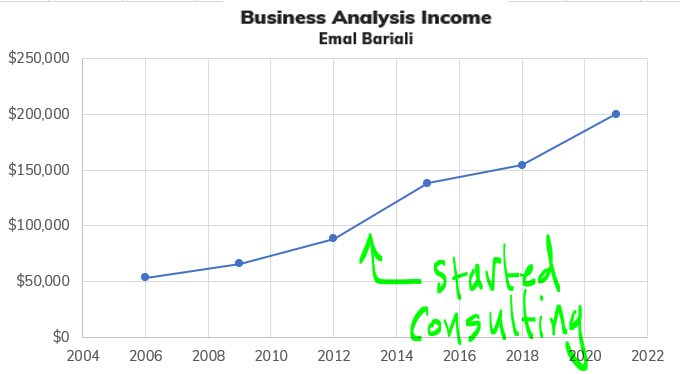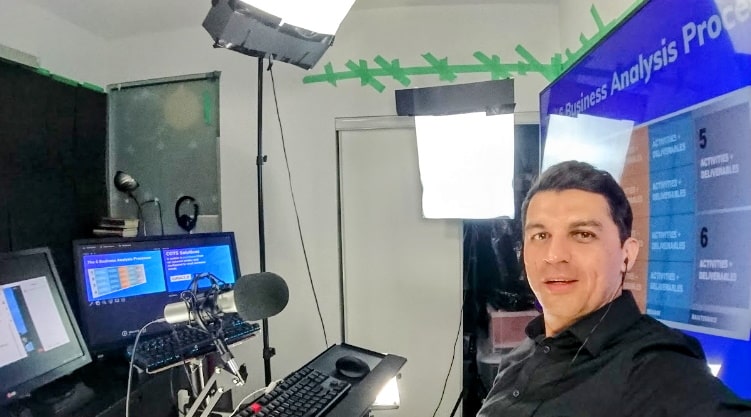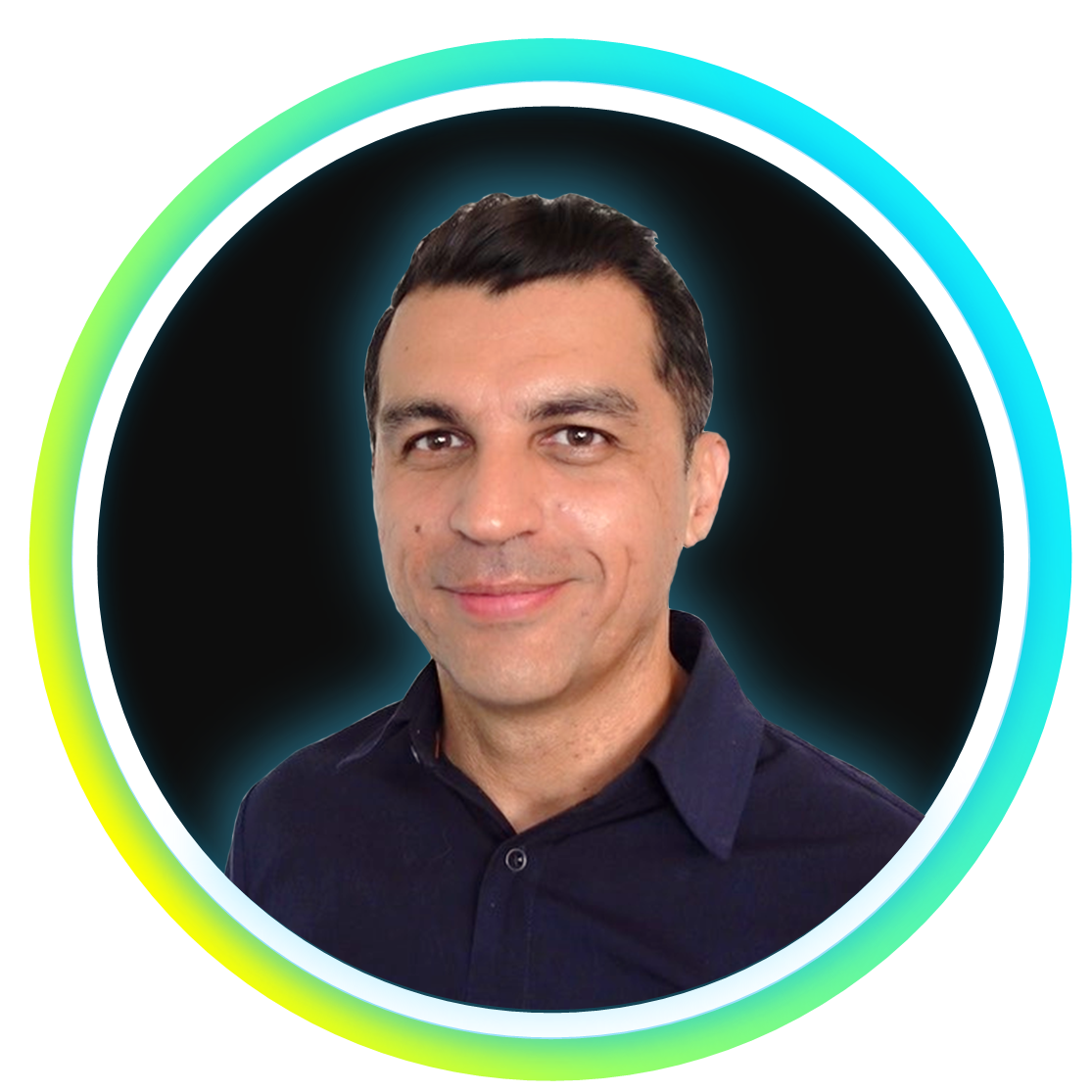Business analysis consulting may not be for everyone, but I made the jump in 2013 and it changed my life forever.
I spent about 8 years doing business analysis work on many types of projects as a permanent employee before I was ready to jump into business analysis consulting.
The two years I spent as a BA team lead between March 2011 to November 2012 gave me the confidence I needed to dive headfirst into BA consulting and by the end of 2012 I'd quit my full-time job.
I incorporated myself, started looking for consulting clients, and landed my first client engagement within a few months.

Here are a few of the main ways my life changed from my move into BA consulting.
1. More Income
Permanent employment limited my income potential. Transitioning to consulting gave me the ability to bring in much more income by doing similar work to my permanent job.
Many employers are willing to pay a much higher pay rate for a consultant because they know it's a temporary engagement and because they quickly need a skillset or additional capacity that may not exist in their current business analysis team.
Taking advantage of this gave me the ability to grow gross income fivefold between 2005 and 2022.

Being able to generate this level of income is also what gave me the time and resources needed to create BA BLOCKS.
2. Less Stability
There's a reason why permanent employment is so coveted: Stability.
Becoming a consultant means you have little stability in your work. Employers usually don't need any reason to terminate your engagement early, and you must learn to source new clients and projects every time your client engagement ends.
You must get very good at having your resume chosen, and in performing well during interviews. This is something you'll be doing every 6 to 12 months when you become a consultant.
3. More Free Time
Having more income makes your "bench time" easier to weather. Bench time is the consulting term used for the time in between your client engagements when you're not working.
This additional free time can be dedicated to anything you want. For example, I chose to dedicate all my bench time to building BA BLOCKS and doing some traveling.

Since November of 2022 I've been turning down consulting engagements (temporarily) to focus on teaching everything I've learned to the next generation of business analysts.
4. More Complexity & Risk
Being a permanent employee shields you from much of the complexity and risks of having to start and operate your own business. Your employer manages all the risks of operating a business, and you as the employee, get to enjoy a relatively simple employment life.
As a consultant, you're now a business owner, and you must handle all the extra work that comes with starting and operating a business. This can include:
- Bookkeeping, accounting, and legal costs of operating a business.
- Retirement investing to make sure you can retire when you want to.
- Business development to make sure you have work coming in.
- Risk of tax and regulatory compliance with changing laws.
As a consultant, you must make sure that you set aside a certain portion of your extra income to handle the costs of administering your business.
5. More Accountability
Your clients hire you for your hard analytical skills. They are paying you big money, and they want results.
VPs and Directors understand nothing better than ROI, and they expect you to deliver on the "R" for that ROI by using your hard analytical skills to deliver for their teams while using your soft skills to magnify the value you're bringing.
Relying on your soft skills alone isn't enough to get you in the door for consulting engagements. You need hard analytical skills such as: current state analysis, future state process design, user stories, use cases, wireframes, screen specifications, and data modeling.
These are all the skills we teach our students in FOBA™.

About the Author
Emal Bariali is a seasoned business analysis professional with 20+ projects executed since starting his BA career in 2005.
Emal increased his yearly business analysis income fivefold between 2005 and 2022 by enhancing his BA skills and transitioning to BA consulting.


Leave a Reply